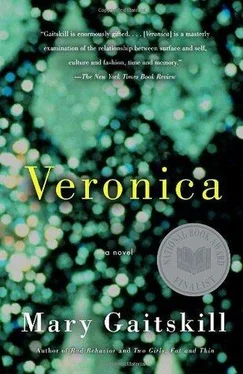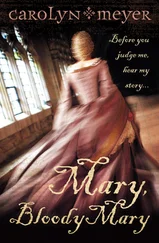When I was young, my mother read me a story about a wicked little girl. She read it to me and my two sisters. We sat curled against her on the couch and she read from the book on her lap. The lamp shone on us and there was a blanket over us. The girl in the story was beautiful and cruel. Because her mother was poor, she sent her daughter to work for rich people, who spoiled and petted her. The rich people told her she had to visit her mother. But the girl felt she was too good and went merely to show herself. One day, the rich people sent her home with a loaf of bread for her mother. But when the little girl came to a muddy bog, rather than ruin her shoes, she threw down the bread and stepped on it. It sank into the bog and she sank with it. She sank into a world of demons and deformed creatures. Because she was beautiful, the demon queen made her into a statue as a gift for her great-grandson. The girl was covered in snakes and slime and surrounded by the hate of every creature trapped like she was. She was starving but couldn’t eat the bread still welded to her feet. She could hear what people were saying about her; a boy passing by saw what had happened to her and told everyone, and they all said she deserved it. Even her mother said she deserved it. The girl couldn’t move, but if she could have, she would’ve twisted with rage. “It isn’t fair!” cried my mother, and her voice mocked the wicked girl.
Because I sat against my mother when she told this story, I did not hear it in words only. I felt it in her body. I felt a girl who wanted to be too beautiful. I felt a mother who wanted to love her. I felt a demon who wanted to torture her. I felt them mixed together so you couldn’t tell them apart. The story scared me and I cried. My mother put her arms around me. “Wait,” she said. “It’s not over yet. She’s going to be saved by the tears of an innocent girl. Like you.” My mother kissed the top of my head and finished the story. And I forgot about it for a long time.
I open my eyes.
I can’t sleep. When I try, I wake after two hours and then spend the rest of the night pulled around by feelings and thoughts. I usually sleep again at dawn, then wake at 7:30. When I wake, I’m mad at not sleeping, and that makes me mad at everything. My mind yells insults as my body walks itself around. Dream images rise up and crash down, huge, then gone, huge, gone. A little girl sinks down in the dark. Who is she? Gone.
I drink my coffee out of a heavy blue mug, watching the rain and listening to a fool on a radio show promote her book. I live right on the canal in San Rafael and I can look out on the water. There’re too many boats on it and it’s filthy with gas and garbage and maybe turds from the boats. Still, it’s water, and once I saw a sea lion swimming toward town.
Every day, my neighbor Freddie leaps off his deck and into the canal for a swim. This disgusts my neighbor Bianca. “I asked him, ‘Don’t you know what’s in there? Don’t you know it’s like swimming in a public toilet?’ ” Bianca is a sexy fifty-year-old, sexy even though she’s lost her looks, mainly because of her big fat lips. “He doesn’t care; he says he just takes a hot shower after.” Bianca draws on her cigarette with her big lips. “Probably get typhoid.” She blows out with a neat turn of her head; even her long ropy neck is sort of sexy. “I hate the sight of him flying through the air in that little Speedo, God!”
Sure enough, while I’m looking out the window, Freddie, all red and fleshy, with his stomach hanging down and his silver head tucked between his upstretched arms, vaults through the air and— wap! — hits the water like a bull roaring in the field. I can just see Bianca downstairs muttering “Shit!” and slamming the wall with her fist. He’s a big fifty-something, with a huge jaw and muscles like lumps of raw meat just going to fat. His round eyes show one big emotion at a time: Joy. Anger. Pain. Fear. But his body is full of all those things happening at once, and that’s what you see when he’s swimming. He attacks the water with big pawing strokes, burying his face in it like he’s trying to eat it out. Then he stops and treads water, his snorting head tossing and bobbing for a second before he turns and lies down in the water, like a kid, with total trust — ah! — face to the sky, regardless of the rain or turds.
Even though he’s big, Freddie’s got the face of somebody who’s been beat too many times, like his face is just out there to be beat. He’s also got the face of somebody who, after the beating is done, gets up, says “Okay,” and keeps trying to find something good to eat or drink or roll in. He likes to end stories by saying, “But they’d probably just tell you I’m an a-s-s-h-o-l-e,” like, Oh well, what’s on TV? That’s the thing Bianca hates most, that beat-up but still leaping out into the turds for a swim quality. Especially the leaping: It’s like a personal affront to her. But I like it. It reminds me of the sea lion, swimming into town with its perfect round head sticking up — even though the lion is gliding and Freddie is rough. It’s like something similar put in different containers. Sometimes I want to say this to Bianca, to defend Freddie. But she won’t listen. Besides, I understand why he disgusts her. She’s a refined person, and I like refinement, too. I understand it as a point of view.
The writer on the radio is talking about her characters like they’re real people: “When you look at it from her point of view, his behavior really is strange, because to her, they’re just playing a sexy game, whereas for him it’s—” She blooms out of the radio like a balloon with a face on it, smiling, wanting you to like her, vibrating with things to say. Turn on the radio, there’s always somebody like her on somewhere. People rushing through their lives turn the dial looking for comfort, and the excited smiling words spill over them. I drink my coffee. The novelist’s characters dance and preen. I drink my coffee. People from last night’s dream stumble in dark rooms, screaming at one another, trying hard to do something I can’t see. I finish my coffee. Water is seeping in and soaking the edge of the carpet. I don’t know how this happens, I’m on the second floor.
It’s time for me to go clean John’s office. John is an old friend, and as a favor, he pays me to clean his office every week. Into my patchwork bag I pack the necessaries — aspirin, codeine, bottle of water — then I look for my umbrella. When I find it, I realize it’s broken, and I curse before I remember the other one, the red one from New York that I never use. I got it at the Museum of Modern Art gift shop when I lived in Manhattan. It has four white cartoon sheep, plus one black one, printed on its edge, along with the name of the museum. The decoration is precious and proper, and it reminds me of Veronica Ross. She is someone from my old life. She loved anything precious and proper: small intricate toys, photographs in tiny decorated frames, quotes from Oscar Wilde. She loved MoMA and she loved New York. She wore shoulder pads, prissy loafers, and thin socks. She rolled her trouser cuffs in this crisp way. On her glass-topped coffee table, she had miniature ashtrays, gilt matchboxes, and expensive coasters decorated with smiling cats.
When I go out into the hallway, Rita is there in her housecoat and slippers, holding a little plate of fried chicken livers. She offers me some, says she made too many last night. They smell good, so I take one and eat it while I talk to Rita. She says that last week “that son of a bitch Robert” fired up the barbecue again, on the puny deck right under hers, sending up poisonous charcoal fumes, which, she has explained time and again, are terrible for her hepatitis.
Читать дальше












